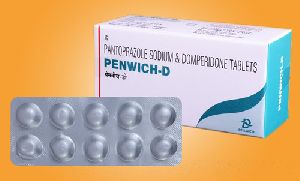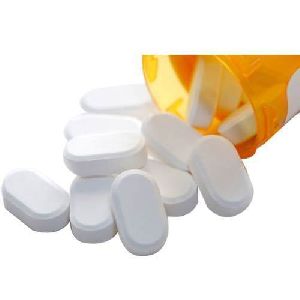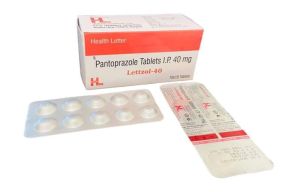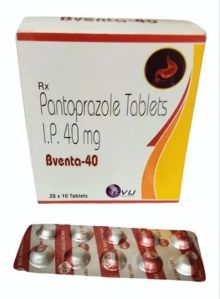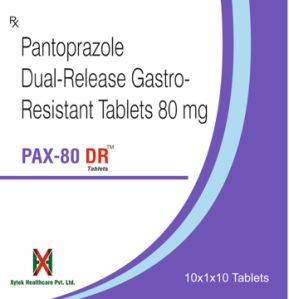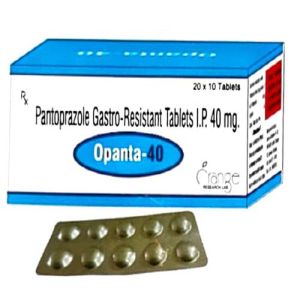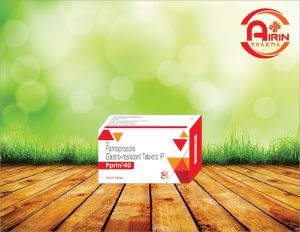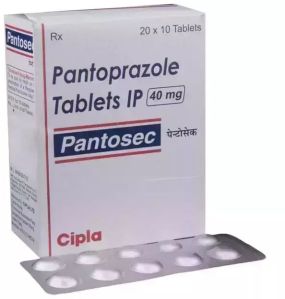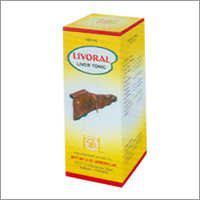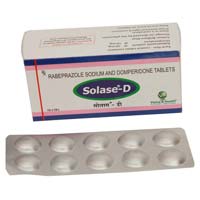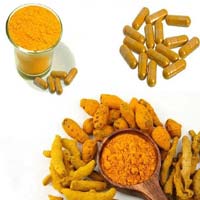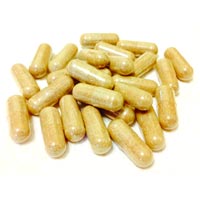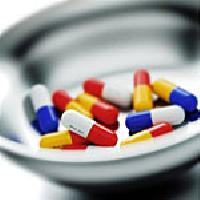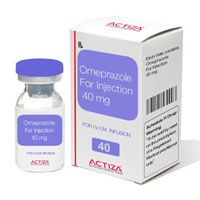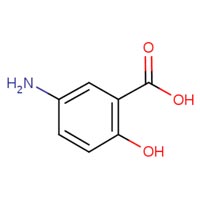Listing ID #116622
Company Information
Ask for more detail from the seller
Contact SupplierWe have firmly positioned ourselves as one of the key Pantoprazole Medicine Manufacturers and Suppliers. Pantoprazole Tablets are consumed, when patient̢۪s esophagus is damaged by stomach acids and other conditions involving excess stomach acid such as Zollinger-Ellison syndrome. Pantoprazole Drugs can also be consumed for ailments other than the stated ones. Result oriented, our Pantoprazole Tablets are available at very affordable prices. It is always advised that the patient should consult a doctor, before consuming these medicines. The course once started should not be left mid way because it might lead to further complications. What is Pantoprazole (Pantol)? Pantoprazole (Pantol) is in a group of drugs called proton pump inhibitors. It decreases the amount of acid produced in the stomach. Pantoprazole (Pantol) is used to treat erosive esophagitis (damage to the esophagus from stomach acid), and other conditions involving excess stomach acid such as Zollinger-Ellison syndrome. Pantoprazole (Pantol) may also be used for purposes other than those listed in this medication guide. What is the most important information I should know about Pantoprazole (Pantol)? Do not stop taking Pantoprazole (Pantol) even if you begin to feel better. Your symptoms may improve before the condition is fully treated. Do not crush, chew, or break a delayed-release (enteric-coated) tablet. It is specially made to release the medicine slowly into your body. The oral granules should be mixed only with applesauce or apple juice to make swallowing easy. Do not use any other type of liquid or soft food. Pantoprazole (Pantol) granules may also be given with apple juice through a nasogastric (NG ) tube. Some conditions must be treated long-term with pantoprazole (Pantol). The chronic use of pantoprazole (Pantol) has caused stomach cancer in animal studies, but it is not known if this medication would have the same effects in humans. Talk with your doctor about your specific risk of developing stomach cancer. Long-term treatment with pantoprazole (Pantol) may also make it harder for your body to absorb vitamin B-12, resulting in a deficiency of this vitamin. Talk with your doctor if you need long-term pantoprazole (Pantol) treatment and you have concerns about vitamin B-12 deficiency. What should I discuss with my healthcare provider before taking pantoprazole (Pantol)? Do not take this medication if you are allergic to pantoprazole (Pantol). Before taking pantoprazole (Pantol), tell your doctor if you are allergic to any drugs. Some conditions must be treated long-term with pantoprazole (Pantol). The chronic use of pantoprazole (Pantol) has caused stomach cancer in animal studies, but it is not known if this medication would have the same effects in humans. Talk with your doctor about your specific risk of developing stomach cancer. Long-term treatment with pantoprazole (Pantol) may also make it harder for your body to absorb vitamin B-12, resulting in a deficiency of this vitamin. Symptoms of a vitamin B-12 deficiency may develop slowly and include pale skin, weakness, tired feeling, shortness of breath, and a fast heart rate. Talk with your doctor if you need long-term pantoprazole (Pantol) treatment and you have concerns about vitamin B-12 deficiency. FDA pregnancy category B. This medication is not expected to be harmful to an unborn baby. Tell your doctor if you are pregnant or plan to become pregnant during treatment. It is not known whether pantoprazole (Pantol) passes into breast milk or if it could harm a nursing baby. Do not use this medication without telling your doctor if you are breast-feeding a baby. How should I take pantoprazole (Pantol)? Take this medication exactly as it was prescribed for you. Do not take the medication in larger amounts, or take it for longer than recommended by your doctor. Follow the directions on your prescription label. Pantoprazole (Pantol) can be taken with or without food. Do not crush, chew, or break a delayed-release (enteric-coated) tablet. Swallow the pill whole. The enteric-coated pill has a special coating to protect your stomach. Breaking the pill could damage this coating, causing too much of the drug to be released at one time. The oral granules should be mixed only with applesauce or apple juice to make swallowing easy. Do not use any other type of liquid or soft food. Sprinkle the granules directly onto a teaspoon of applesauce and swallow this mixture right away without chewing. Or pour the granules into a cup with 1 teaspoon of apple juice, stir for 5 seconds and swallow right away. To make sure you get the entire dose, add a little more apple juice to the same glass, swirl gently and drink right away. Do not save the granule mixture for later use. To give pantoprazole (Pantol) granules through a nasogastric (NG) feeding tube:
Do not stop taking pantoprazole (Pantol) even if you begin to feel better. Your symptoms may improve before the condition is fully treated. Call your doctor if your condition does not improve after 8 weeks of treatment. Store pantoprazole (Pantol) at room temperature away from moisture and heat. What happens if I miss a dose? Take the missed dose as soon as you remember. If it is almost time for your next dose, skip the missed dose and take the medicine at the next regularly scheduled time. Do not take extra medicine to make up the missed dose. What happens if I overdose? Seek emergency medical attention if you think you have used too much of this medicine. An overdose of pantoprazole (Pantol) is not expected to produce life-threatening symptoms. What should I avoid while taking pantoprazole (Pantol)? Follow your doctor's instructions about any restrictions on food, beverages, or activity while you are using pantoprazole (Pantol). Pantoprazole (Pantol) side effects Get emergency medical help if you have any of these signs of an allergic reaction: hives; difficulty breathing; swelling of your face, lips, tongue, or throat. Less serious side effects are more likely to occur, such as:
Pantoprazole (Pantol) Dosing Information Usual Adult Dose for Erosive Esophagitis : Treatment of Erosive Esophagitis : 40 mg orally once a day for up to 8 weeks; however an additional 8 weeks may be considered for patients who have not healed after the initial treatment. Safety and efficacy beyond 16 weeks of therapy have not been established. Maintenance of Healing of Erosive Esophagitis : 40 mg orally once a day. Controlled studies have been limited to 12 months of pantoprazole (Pantol) therapy. Usual Adult Dose for Gastroesophageal Reflux Disease : Parenteral : 40 mg once a day for 7 to 10 days, administered via intravenous infusion over a period of 15 minutes. Intravenous therapy should be discontinued as soon as the patient is able to resume oral therapy. Oral : 40 mg orally once a day, for short-term administration (up to 8 weeks); however an additional 8 weeks may be considered for patients who have not healed after the initial treatment. Safety and efficacy beyond 16 weeks of therapy have not been established. Usual Adult Dose for Duodenal Ulcer : Study (n=54) 40 mg orally once a day, dose was increased every 12 weeks by 40 mg increments to a maximum of 120 mg per day, for 28 weeks. Data have revealed that monotherapy with daily doses of 40 mg have been associated with complete duodenal ulcer healing in up to 87% and 94% of patients after 4 weeks and 8 weeks respectively. Usual Adult Dose for Gastric Ulcer : 40 mg orally once a day. Data have revealed that monotherapy with daily doses of 40 mg have been associated with complete gastric ulcer healing in up to 87% and 97% of patients after 4 weeks and 8 weeks respectively. Usual Adult Dose for Helicobacter pylori Infection : Study (n=242) - Triple therapy : 40 mg orally twice daily for 7 days, commonly in conjunction with clarithromycin and either amoxicillin or metronidazole to eradicate Helicobacter pylori, followed with 40 mg pantoprazole orally once daily until day 28. Triple therapy has resulted in eradication rates of greater than 95%. The QUADRATE Study (n=405) - Quadruple therapy : 40 mg orally twice daily for 7 days, concomitantly with bismuth subcitrate and tetracycline, both four times daily, and metronidazole 200 mg three times daily and 400 mg at bedtime. Helicobacter Pylori eradication was achieved in 82% of patients. Usual Adult Dose for Zollinger-Ellison Syndrome : Parenteral : 80 mg every 12 hours, administered by 15-minute infusion. Daily doses higher than 240 mg administered in equally divided doses by 15-minute infusion, or administered for more than 6 days have not been studied. Oral : 40 mg twice daily, to a maximum of 240 mg per day. Some patients have received treatment with pantoprazole for more than 2 years. Usual Adult Dose for Stress Ulcer Prophylaxis : Study (n=21) - Stress Ulcer bleeding prophylaxis in the Critical Care Setting : 80 mg twice daily, as a bolus infusion over a period of 15 minutes, to a maximum daily dose of 240 mg, divided into three equal doses. Study (n=20 ) - Peptic Ulcer rebleeding prophylaxis after hemostasis in the Critical Care Setting: 80 mg IV bolus, followed by continuous infusion of 8 mg/hr for 3 days, after which therapy may be continued with an oral PPI. Usual Adult Dose for Peptic Ulcer : Study (n=21) - Stress Ulcer bleeding prophylaxis in the Critical Care Setting: 80 mg twice daily, as a bolus infusion over a period of 15 minutes, to a maximum daily dose of 240 mg, divided into three equal doses. Study (n=20 ) - Peptic Ulcer rebleeding prophylaxis after hemostasis in the Critical Care Setting: 80 mg IV bolus, followed by continuous infusion of 8 mg/hr for 3 days, after which therapy may be continued with an oral PPI. What other drugs will affect pantoprazole (Pantol)? Before taking pantoprazole (Pantol), tell your doctor if you are using any of the following drugs :
This list is not complete and there may be other drugs that can interact with pantoprazole (Pantol). Tell your doctor about all the prescription and over-the-counter medications you use. This includes vitamins, minerals, herbal products, and drugs prescribed by other doctors. Do not start using a new medication without telling your doctor.


